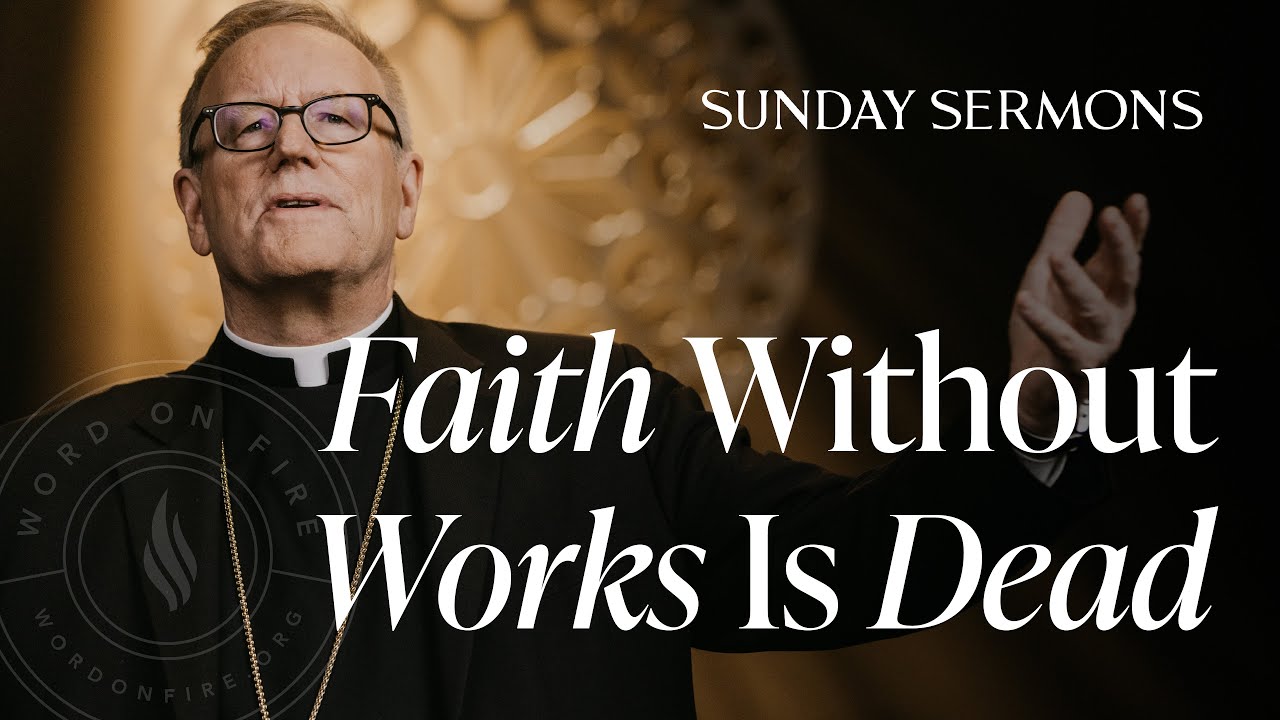How Abraham Proves Faith DIES Without Works
Summary
TLDRThe transcript analyzes the Catholic view of justification, which is an ongoing process requiring both faith and works, not a one-time event. It examines Abraham's journey of faith in Genesis, arguing his justification began when he first believed God's call in Genesis 12, then progressed through acts like believing God's promise of Isaac in Genesis 15 and ultimately offering Isaac in Genesis 22. The latter fulfills or 'perfects' Abraham's faith, showing works complete faith. Using body/Spirit and faith/works comparisons, it contends living faith dies without works. It rebuts the Protestant belief of justification by faith alone, asserting instead that continued good works are essential to keep faith alive and attain final salvation.
Takeaways
- 😀 The Catholic view is that justification is an ongoing lifelong process, not just a one-time event.
- 👍 Initial justification is entirely by God's grace and cannot be merited through works.
- 🤔 Abraham had saving faith long before Genesis 15:6, going back to Genesis 12 when he left Ur.
- 📖 Genesis 15:6 and James 2 refer to a later phase of justification requiring cooperation with grace.
- ✅ Works complete and perfect justifying faith; faith alone is insufficient.
- 🔁 Justification and works have a dynamic, interconnected relationship.
- ❗️ Lack of works causes even living faith to die, like a body without spirit.
- 💡 James argues against those teaching justification by faith alone in 1st century.
- 📐 Paul agrees works are essential for final salvation, to keep faith alive (Rom 2:6-7).
- 👍🏻 Key is to continue in good works, cooperating with grace for lifelong justification.
Q & A
What is the Catholic understanding of the initial grace of justification?
-The Catholic position is that the initial grace of justification is entirely unmerited. We cannot do anything whatsoever to merit or earn that initial grace of salvation.
How does Abraham's story in Genesis demonstrate the Catholic view of justification as a lifelong process?
-Abraham first enters into a saving relationship with God by faith in Genesis 12. Then in Genesis 15:6 his justification continues by faith being reckoned as righteousness. Finally in Genesis 22 he offers Isaac as a sacrifice, completing his faith through works.
What point is St. James making by referring to Abraham's offering of Isaac?
-St. James is refuting the idea some had that justification is by faith alone. Abraham's offering of Isaac shows that works complete faith as part of the ongoing process of justification.
What does it mean that works perfect faith according to James?
-It means that works are essential for keeping faith alive and completing the process of justification. Works actively cooperate with grace to perfect faith over our whole lifetime.
How does James compare the relationship of faith and works to the body and spirit?
-Just as a living body needs the spirit to remain alive, faith needs works to remain a living faith. Without works, faith is dead just as a body is dead without the spirit.
What kind of faith is James referring to when he speaks of faith dying without works?
-James is referring to a living faith. He presupposes an existing, living faith that will die without the accompaniment of works.
How does this contrast with the Protestant view of justification?
-The Protestant view sees justification as a one-time event, while James shows it is an ongoing process that requires works to be completed. Without works, even existing faith dies.
What does Paul say about the necessity of works for final salvation?
-Paul says in Romans that God will reward each person according to their works. Eternal life is given to those who continue in good works.
What role do works play in keeping faith alive over our lifetime?
-Works actively cooperate with grace to perfect faith throughout our life. By continuing in good works, we keep our faith alive so that it remains a living faith.
Why can't faith alone save us according to James?
-Because faith without works is dead faith. Works are essential for completing and perfecting faith as part of the lifelong justification process.
Outlines

This section is available to paid users only. Please upgrade to access this part.
Upgrade NowMindmap

This section is available to paid users only. Please upgrade to access this part.
Upgrade NowKeywords

This section is available to paid users only. Please upgrade to access this part.
Upgrade NowHighlights

This section is available to paid users only. Please upgrade to access this part.
Upgrade NowTranscripts

This section is available to paid users only. Please upgrade to access this part.
Upgrade NowBrowse More Related Video

Faith Without Works Is Dead - Bishop Barron's Sunday Sermon

What You Need to Be Saved (Faith vs. Works)

What is Health? | Components of Health

Why Family Businesses Fail To Do Succession Planning

Introduction to the Protestant Reformation: Martin Luther

Book of Romans Summary: A Complete Animated Overview (Part 1)
5.0 / 5 (0 votes)